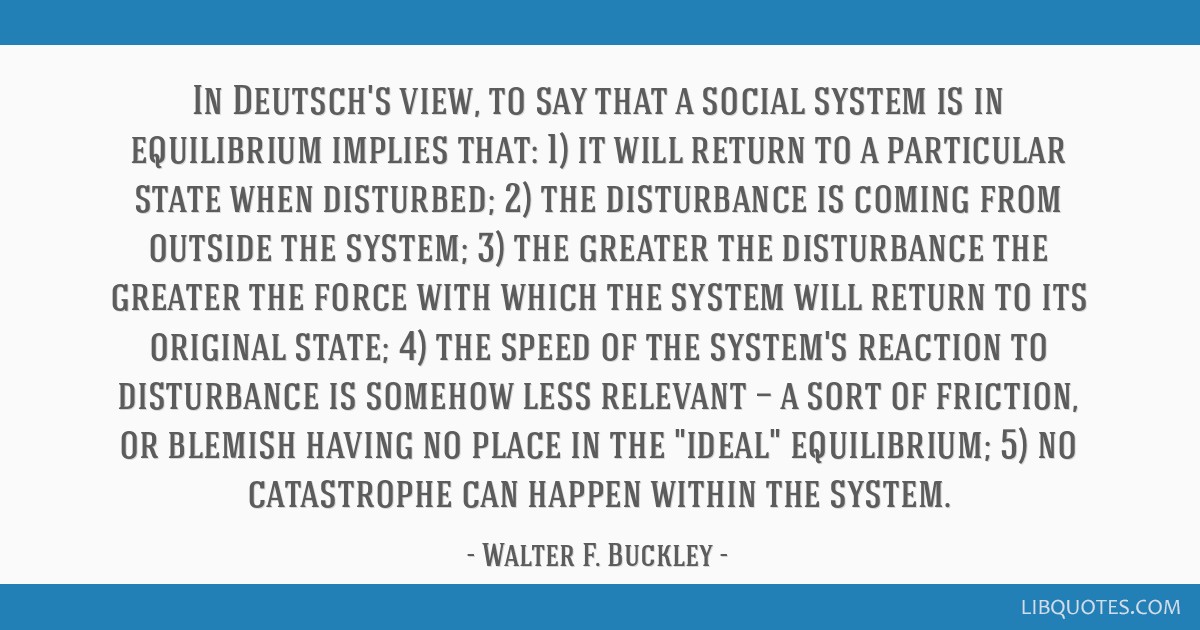In Deutsch's view, to say that a social system is in equilibrium implies that: 1) it will return to a particular state when disturbed; 2) the disturbance is coming from outside the system; 3) the greater the disturbance the greater the force with which the system will return to its original state; 4) the speed of the system's reaction to disturbance is somehow less relevant — a sort of friction, or blemish having no place in the "ideal" equilibrium; 5) no catastrophe can happen within the system.
p. 56. - Sociology and modern systems theory (1967)























